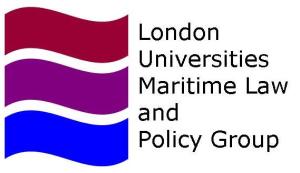Hosted by Lisa Otto
Biography
Lisa Otto holds a MA in International Peace and Security from King’s College London’s War Studies Department, which she achieved with Distinction, as well as BA and BA Honours degrees from the University of Johannesburg. She is now pursuing doctoral studies in Politics under the auspices of the SARChI Chair in African Diplomacy. and is currently conducting visiting research at the GMI. Her doctoral study investigates the evolution of maritime piracy in Nigeria.
Lisa’s research interests include non-traditional threats to security, particularly in Africa, as well as African foreign policy and engagement at the regional and international levels. Before returning to UJ to begin her doctorate, Lisa worked with the Institute for Security Studies and the South African Institute of International Affairs. She has also worked on projects with Transparency International, the African Union, Corruption Watch, and the European Commission, and has conducted field research in Finland, South Africa, Kenya, Mozambique and Ethiopia.
Topic
Nigeria and Piracy: the Evolution of a Complex Problem
Abstract:
While piracy is certainly not a new predicament off West Africa’s coast, it is one that has certainly become more punctuated in recent years, particularly off the shores of Nigeria. Piracy there challenges our traditional understanding of the crime, taking on a more domestic nature, and one that tends to centre on the region’s thriving oil industry. It is with the legacy of this industry too that it finds its origins, which, enmeshed with defining features of the Nigerian state (corruption, neo-patrimonialism, poverty, and criminality), has come to pose a significant threat to economic and security imperatives in Nigeria and the sub-region. Actors tasked with tackling the phenomenon have been implicated in the crime itself, rendering it an exceedingly complex problem to solve. This presentation will unpack the nature of piracy in Nigeria (and by extension West Africa), offering insight into underlying causal factors of the crime, how it plays out on these troubled waters, and what efforts are being taken to bring it to an end.
For more information on getting to the venue click here



